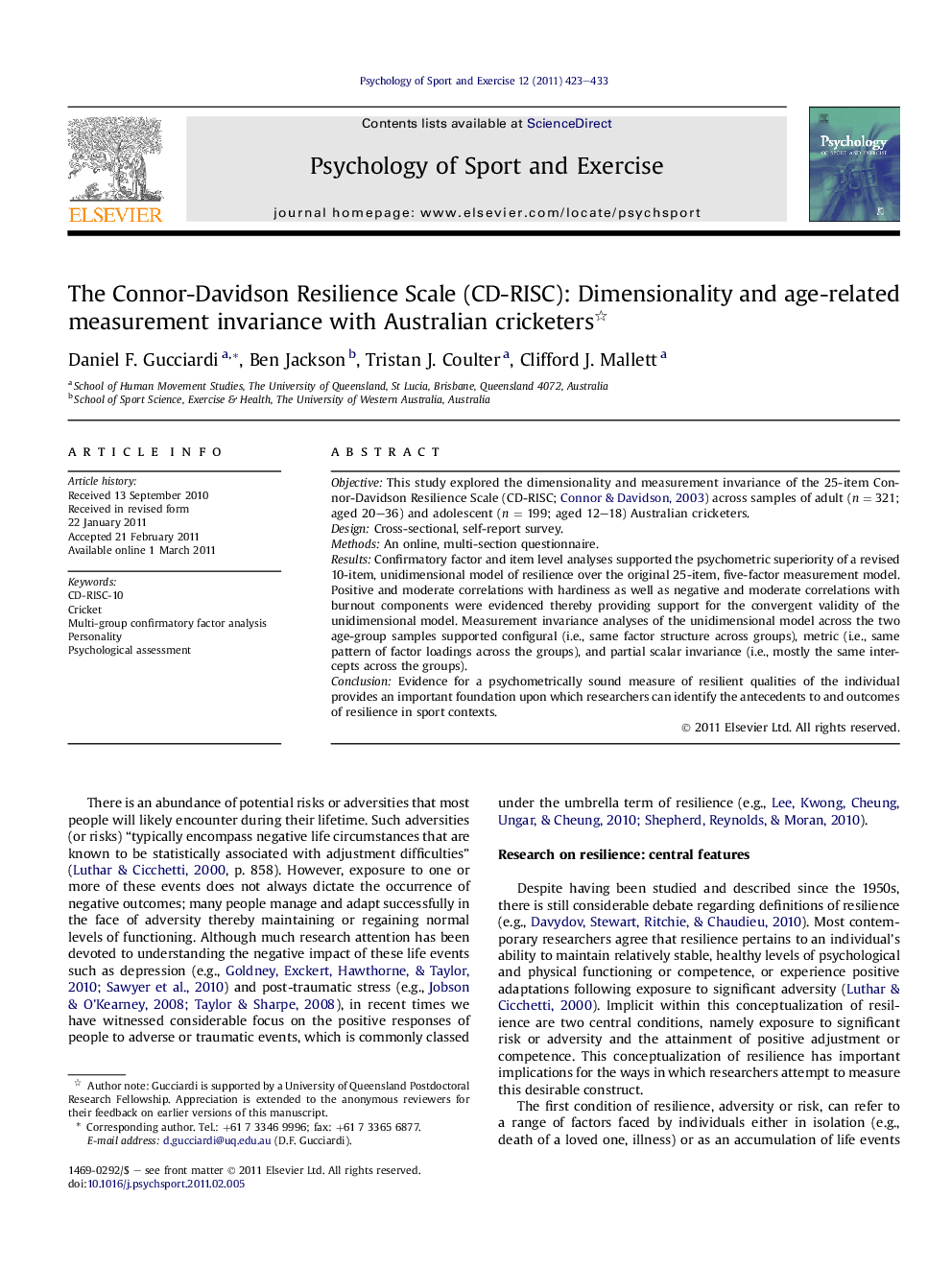| Article ID | Journal | Published Year | Pages | File Type |
|---|---|---|---|---|
| 894426 | Psychology of Sport and Exercise | 2011 | 11 Pages |
ObjectiveThis study explored the dimensionality and measurement invariance of the 25-item Connor-Davidson Resilience Scale (CD-RISC; Connor & Davidson, 2003) across samples of adult (n = 321; aged 20–36) and adolescent (n = 199; aged 12–18) Australian cricketers.DesignCross-sectional, self-report survey.MethodsAn online, multi-section questionnaire.ResultsConfirmatory factor and item level analyses supported the psychometric superiority of a revised 10-item, unidimensional model of resilience over the original 25-item, five-factor measurement model. Positive and moderate correlations with hardiness as well as negative and moderate correlations with burnout components were evidenced thereby providing support for the convergent validity of the unidimensional model. Measurement invariance analyses of the unidimensional model across the two age-group samples supported configural (i.e., same factor structure across groups), metric (i.e., same pattern of factor loadings across the groups), and partial scalar invariance (i.e., mostly the same intercepts across the groups).ConclusionEvidence for a psychometrically sound measure of resilient qualities of the individual provides an important foundation upon which researchers can identify the antecedents to and outcomes of resilience in sport contexts.
► Psychometric support for a 10-item, unidimensional model of resilience. ► Supported relationships between resilience and hardiness (positive) and burnout (negative). ► Measurement invariance of the unidimensional model across the two age-group samples.
